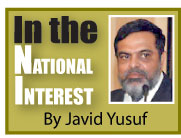Columns
Use electoral reforms at local government level to promote national unity
View(s):Sri Lanka was one of the earliest countries to be granted universal franchise. Since 1931 all citizens above the age of 21, (and since 1959 all those above the age of 18)have got accustomed to electing their representatives to the different arms of government at periodic elections.
With the voters’ willingness to defeat incumbent governments and install alternate governments whenever they felt it necessary to do so, the island earned the reputation of being a vibrant democracy. Right up to the adoption of the second Republican Constitution in 1978, the election campaigns were characterised largely by policy based debates with a minimal amount of personalised criticism of candidates.
 One of the most dominant issues at elections prior to the 1978 Constitution was the form the economy should take. The capitalist economic model was the preferred option of the United National Party while the traditional left parties like the Lanka Sama Samaja Party and Communist Party advocated the socialist model in which the State would control the commanding heights of the economy. Since the mid-fifties the Sri Lanka Freedom Party led by S.W.R.D Bandaranaike introduced the concept of ‘the middle path” into the debate.
One of the most dominant issues at elections prior to the 1978 Constitution was the form the economy should take. The capitalist economic model was the preferred option of the United National Party while the traditional left parties like the Lanka Sama Samaja Party and Communist Party advocated the socialist model in which the State would control the commanding heights of the economy. Since the mid-fifties the Sri Lanka Freedom Party led by S.W.R.D Bandaranaike introduced the concept of ‘the middle path” into the debate.
It was only after the introduction of the Presidential system of Government and the Proportionate Representation (PR) system of election by the 1978 Constitution, that election campaigns became personalised and acrimonious signalling a paradigm shift in the quality of political debate.
The Presidential system over-emphasised the importance of the individual over policy and therefore invited exaggerated focus on the individual as opposed to policy issues in election campaigns. The PR system blurred the policy differences of political parties and rather highlighted the merits or demerits of individual candidates descending often into character assassination that made good candidates shy away from the hustings.
For a candidate to be elected under the PR system the more he highlighted the ‘negatives’ of the competing candidate the better, with the divisive characteristics of caste, creed, race and religion coming in handy for the purpose. In fact apart from spawning corruption, lack of accountability and other shortcomings one of the most obnoxious features of the PR system is the tendency to create and proliferate differences based on caste, creed, race and religion within political parties thus making policy and individual integrity less important.
Among the myriad challenges the country currently faces, one of the biggest is the forging of national unity. Any future electoral reform should ensure that apart from enhancing the quality of the legislature as well as achieving other objectives, it should promote and enable national unity.
One of the best ways of promoting national unity is to make people and the diverse sections of society interdependent and thereby create an environment that enables them to work together for common objectives. Electoral reform at the lowest tier of government namely at local government level can immeasurably benefit and promote close ties at the grassroots level. If one examinesgovernance at the local government level it will be observed that it is more to do with delivery of services rather than formulation of policy except at a minimal level. Thus the demands on a local councillor are different to that of a legislator at the Parliamentary level.
Prior to the introduction of the PR system to local government elections, it was sufficient for a potential candidate to be known among the residents of a few streets to have a chance of being elected. Outstanding local level leaders irrespective of religion and ethnicity feltencouraged to enter the electoral fray because with the ward system encompassing the residents of a few streets there would be no strains on their purse even if they wanted to contest the election.
Besides, and even more importantly, the voter would rally round capable persons of integrity rather than those of their own ethnicity and religion. Such a system would greatly facilitate people working together for common goals and thereby strengthen unity at the grass root level and would disempower those who wished to use communal divisions to achieve political ends.
The replacing of the PR system with the previous ward system will also prevent the emergence of ‘political war lords’ who throw their weight around with their sense of self importance as a result of heading a local authority.
It is the PR system that has produced characters like the Mayor of Moratuwa who interfered with the vaccination process, the Mayor of Kurunegala who is accused of demolishing King Buwanekabahu’s ceremonial hall and more recently for arranging a birthday party for himself at the Kurunegala Police headquarters in contravention of quarantine guidelines.
A few years back the country witnessed the phenomenon of a local body head being accused of raping a Russian tourist and another head of a local body chasing away some Opposition politicians who had come to inspect the Hambantota Harbour using a “toy gun.”
The PR system at the local government level has seen the increase of violence at the lowest tier of governance and the disappearance of the respected ‘city fathers’ who silently and unostentatiously worked for their constituents during the time of the ward system of the past.
Of course whatever system of electoral reform is introduced, the success or failure of such system will largely depend on how wisely the voter exercises his or her franchise.
(javidyusuf@gmail.com)


Leave a Reply
Post Comment